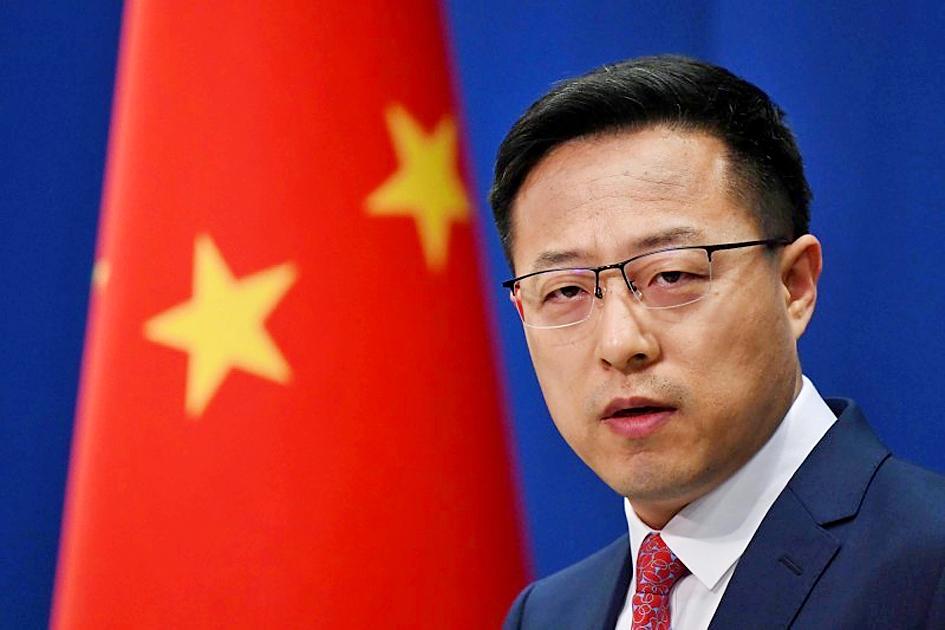The White House is moving forward with three sales of advanced weaponry to Taiwan, sending in recent days a notification of the deals to the US Congress for approval, five sources familiar with the situation said on Monday.
Asked about the report, the Taipei Economic and Cultural Representative Office in Washington said it had no comment.
The news broke last month that as many as seven major weapons systems were making their way through the US export process, as US President Donald Trump’s administration increases pressure on China.

Photo: AFP
Leaders of the foreign affairs committees of the US Senate and House of Representatives were notified that three of the planned weapons sales had been approved by the US Department of State, which oversees foreign military sales, the sources said, speaking on condition of anonymity.
The informal notifications were for a truck-based rocket launcher made by Lockheed Martin Corp called a high-mobility artillery rocket system (HIMARS), long-range air-to-ground missiles made by Boeing Co called SLAM-ER, and external sensor pods for F-16 jets that allow the real-time transmission of imagery and data from the aircraft back to ground stations.
Notifications for the sale of other weapons systems, including large, sophisticated aerial drones, land-based Harpoon anti-ship missiles and underwater mines, to deter amphibious landings, have yet to reach Capitol Hill, but these were expected soon, the sources said.
“As a matter of policy, the United States does not confirm or comment on proposed defense sales or transfers until they are formally notified to Congress,” a State Department spokesman said.
Congress’ foreign affairs committees have the right to review, and block, weapons sales under an informal review process before the State Department sends its formal notification to the legislative branch.
US lawmakers, who are generally wary of what they perceive as Chinese aggression and supportive of Taiwan, were not expected to object to the arms sales.
News that new arms sales were moving forward came after senior US officials last week repeated calls for Taiwan to spend more on its own defense and carry out military reforms to make clear to China the risks of attempting to invade.
It comes at a time when China has significantly stepped up military activity near Taiwan and as US-China relations have plunged to the lowest point in decades ahead of the US presidential election.
In Taipei, the Ministry of Foreign Affairs on Monday said that the government had not received official notice of the arms sale, but would explain relevant details to the public once Washington informs the Legislative Yuan.
The government would continue to deepen the secure friendship that it has with the US amid China’s increasing efforts to disrupt regional security across the Taiwan Strait, the ministry added.
In Beijing, the Chinese Ministry of Foreign Affairs yesterday said that it would make a “legitimate and necessary” response to additional US arms sales to Taiwan.
The US should immediately halt all weapons sales to Taiwan, ministry spokesman Zhao Lijian (趙立堅) told a daily news briefing.
Additional reporting by Dennis Xie

The US government has signed defense cooperation agreements with Japan and the Philippines to boost the deterrence capabilities of countries in the first island chain, a report by the National Security Bureau (NSB) showed. The main countries on the first island chain include the two nations and Taiwan. The bureau is to present the report at a meeting of the legislature’s Foreign Affairs and National Defense Committee tomorrow. The US military has deployed Typhon missile systems to Japan’s Yamaguchi Prefecture and Zambales province in the Philippines during their joint military exercises. It has also installed NMESIS anti-ship systems in Japan’s Okinawa

‘WIN-WIN’: The Philippines, and central and eastern European countries are important potential drone cooperation partners, Minister of Foreign Affairs Lin Chia-lung said Minister of Foreign Affairs Lin Chia-lung (林佳龍) in an interview published yesterday confirmed that there are joint ventures between Taiwan and Poland in the drone industry. Lin made the remark in an exclusive interview with the Chinese-language Liberty Times (the Taipei Times’ sister paper). The government-backed Taiwan Excellence Drone International Business Opportunities Alliance and the Polish Chamber of Unmanned Systems on Wednesday last week signed a memorandum of understanding in Poland to develop a “non-China” supply chain for drones and work together on key technologies. Asked if Taiwan prioritized Poland among central and eastern European countries in drone collaboration, Lin

BACK TO WORK? Prosecutors said they are considering filing an appeal, while the Hsinchu City Government said it has applied for Ann Kao’s reinstatement as mayor The High Court yesterday found suspended Hsinchu mayor Ann Kao (高虹安) not guilty of embezzling assistant fees, reducing her sentence to six months in prison commutable to a fine from seven years and four months. The verdict acquitted Kao of the corruption charge, but found her guilty of causing a public official to commit document forgery. The High Prosecutors’ Office said it is reviewing the ruling and considering whether to file an appeal. The Taipei District Court in July last year sentenced Kao to seven years and four months in prison, along with a four-year deprivation of civil rights, for contravening the Anti-Corruption

NO CONFIDENCE MOTION? The premier said that being toppled by the legislature for defending the Constitution would be a democratic badge of honor for him Premier Cho Jung-tai (卓榮泰) yesterday announced that the Cabinet would not countersign the amendments to the local revenue-sharing law passed by the Legislative Yuan last month. Cho said the decision not to countersign the amendments to the Act Governing the Allocation of Government Revenues and Expenditures (財政收支劃分法) was made in accordance with the Constitution. “The decision aims to safeguard our Constitution,” he said. The Constitution stipulates the president shall, in accordance with law, promulgate laws and issue mandates with the countersignature of the head of the Executive Yuan, or with the countersignatures of both the head of the Executive Yuan and ministers or